This morning's leader columns were sanctimonious. To paraphrase: of course listening to people's private conversations was reprehensible, but the response was a waste of public money and an excuse for the Establishment to stamp on the free Press. Oh, and by the way, they're at it again with attempts to curb freedom of information.
Hacked Off was disappointed - leading light Evan Harris described Alison Saunders's announcement as outrageous. Victims' lawyers are ducking under the curtain to try to regain the stage by seeking a review of her decision-making process.
So far, so predictable.
And what of those of us who love our trade? We who have been watching in bewilderment and dismay as the drama has played out? Should we feel relief that it's all over, glad that no more journalists will be put on trial at the Old Bailey?
Probably. So why don't I? Why do I feel uncomfortable?
Because justice has been the loser in this whole sorry story.
As people have been parroting from the moment Nick Davies lit the blue touch paper in July 2011, phone hacking is wrong. It is, and was, criminal. But the fact is, the public didn't (and still don't) care. They didn't care when Prince William's voicemail was intercepted and Glenn Mulcaire and Clive Goodman went to jail as a result. They didn't care when celebrities complained that their phone messages were being listened to. They only started to care when the Milly Dowler story broke - heartless bastard hacks targeting a murdered girl.
OK, the desire was to get a scoop and the delays in sharing information (albeit inaccurate information) with the police were unforgivable. But if those journalists had found that girl alive, they would have been heroes.
So yes, hacking was wrong. But the one case that aroused so much outrage and set this charabanc on the road actually caused far less damage than the Mirror's sustained invasion of the lives of Sadie Frost and Paul Gascoigne. But the public didn't give two figs about them - and now it seems the DPP doesn't either.
Stephen Glover wrote a Saturday essay for the Mail a while back in which he described Davies as the man who did for the British Press. It was a mean-spirited piece that suggested Davies's intention was to destroy tabloid journalism. Davies and the Guardian have never been great fans of Rupert Murdoch and they would probably shed few tears if they put him out of business, but I doubt they thought they had the clout to do so - let alone enough to bring down the whole popular Press.
The Milly Dowler story would have touched a nerve and then subsided from the public consciousness, as previous hacking stories and assorted Commons select committee inquiries had done before, but for one thing: David Cameron's appointment of Andy Coulson as his director of communications.
Everything that has happened over the past four years stems from that mixture. The Dowler story was simply the catalyst that sparked the reaction.
Cameron panicked and set up Leveson; the Met panicked and set up all those investigations with the quirky names; Murdoch panicked and gave the police millions of documents, betraying sources and staff along the way - with the notable exception of one redhead at the top of the tree.
Once they had started uncovering evidence of wrongdoing, where were the police supposed to stop? Especially as they had all those News International emails.
The phone hacking investigations that had been at the root of all this became small beer against the monster that was Elveden. But as successive juries declined to convict journalists for paying sources - while other courts convicted and jailed those same sources for selling information - it finally dawned on the DPP that the whole enterprise was money down the drain.
Saunders retreated on Elveden in October. Andy Coulson was cleared of perjury in Scotland and the final News of the World hacking trial ended with one guilty plea and an acquittal (the Brooks-Coulson show trial having produced three acquittals, one conviction and five guilty pleas).
With police budgets stretched, no wonder Saunders lost her appetite for the fight.
Much of the prosecution case in the Brooks-Coulson trial depended on evidence from Dan Evans (pictured), a News of the World journalist who admitted hacking and was given a suspended prison sentence. He joined the paper from the Sunday Mirror and told the court that he believed that he had been recruited for his hacking talents.
Evans was also the central figure in the civil case brought against the Mirror by Sadie Frost, Gascoigne, Alan Yentob and others. In a judgment awarding record privacy damages totalling £1.2m , Mr Justice Mann called him the bedrock of the case and a clear witness whose evidence he accepted. Indeed, his evidence was mostly accepted without demur by Trinity Mirror before he went into the witness box.
Evans told the court that he had worked at the Sunday Mirror as a freelance for a couple of years before joining the staff in 2003. Soon after that he was called into a meeting with an executive who told him that a departing journalist had taken with him a valuable source of information - a database of telephone numbers that could be hacked.
Evans was shown how to access a voicemail message, with Yentob's number used as an example. He was also shown how to listen to calls and taught the "double tap" method under which two calls were made to a target number in quick succession - the first to make sure the victim wasn't picking up.
The executive at that meeting and others who were aware and even instrumental in the hacking culture were named in court, but redacted from Mr Justice Mann's judgment, which noted:
xxxx made it clear that Mr Evans' job for the forseeable future was to rebuild the departing journalist's database. For this purpose Mr Evans was given hundreds of mobile phone numbers and other details, such as dates of birth....
He was expected to check the phones most mornings (from his home) and then in the evenings as well. If he heard a call of interest he could get the incoming number from the voicemail system and he could then try to hack that phone as well....if the hack was successful he might, and often could, get information from messages left on that second number by his intended target. He called this process of acquiring groups of targets "farming"....
It is plain that his activities grew over time as he managed to crack more and more PINs. He himself managed to crack at least 100 PINs. At least one other journalist had a bigger database than he did.
If he got useful or interesting information from listening to a message he would pass it up the chain of command, which meant to xxx and xxx and xxxxx and xxxx for consideration. Sometimes his exploitation of his phone hacking database took several hours a day.
Mr Evans collated his information on a Palm Pilot...synchronised to a desktop application. His Pilot was used to store names and numbers and some addresses but not PINS. Not every number on the Pilot was a successfully hacked number, but some were.
In addition to that record, Mr Evans kept a “back pocket” list...of regular targets whose PIN numbers he had cracked and whose voicemail messages he could listen to easily. At the height of his activities he said that he probably had 100 targets on his list, and he checked them daily. Of the present claimants, all except Mr Gascoigne were on this list. The effect of his evidence was that those targets would be checked twice a day (morning and evening), every day, as a minimum. Doubtless if something interesting was thought to be happening they would be checked more frequently. The list was updated from time to time and he prepared copies for xxx and xxx.
Alison Saunders has concluded that it would be impossible to decide who made what phone call from the Mirror's offices, and also - apparently - that evidence from Evans and other former Mirror journalists would not be sufficient to secure the conviction of executives who say they knew nothing.
And so we have a repeat of the Elveden situation where foot soldiers were left to carry the can while the generals who called the shots went free.
Under Elveden, the only conviction for paying officials that still stands is that of Anthony France, who was described by his trial judge as the most junior Sun reporter and a basically decent man.
In the parallel investigations, one Mirror journalist - Graham Johnson - took himself off to the police, and was charged with hacking and given a two-month suspended prison sentence for his pains. Apart from Evans and Weatherup - who were charged in relation to their activities at the News of the World - he is the only Mirror journalist to have been punished by the courts.
Ten Mirror group journalists, including half a dozen former editors, deputy editors and a current high-ranking executive, were "cleared" by the DPP yesterday.
Several of them swore under oath at Leveson that hacking never happened at their papers. Some may have done nothing wrong. Others may have orchestrated wholescale criminal activity. We may never know. And that isn't right. The innocent will forever be tainted, while the guilty go unpunished.
Their ultimate bosses at Trinity Mirror also insisted at the Leveson inquiry and beyond that they were unaware of hacking at their papers. Finally, as Gascoigne and co prepared to go to court, they issued a grudging admission of culpability and a mealy-mouthed apology. They set aside £4m, then £12m, then £28m for compensation to victims they had for four years pretended hadn't existed. The company, which has since taken over Local World to control almost two-thirds of our local newspapers, is now awaiting the result of its appeal against Mr Justice Mann's awards.
Meanwhile the CPS has also halted the process that might have led News UK to face corporate charges over phone hacking at the News of the World. Rebekah Brooks, having been cleared of everything for which she was put on trial, is back in her old job of chief executive, and the Murdoch empire - revamped in the wake of the scandal - is worth twice as much as it was in 2011.
The end of the criminal investigations should clear the path for for the second half of the Leveson inquiry - looking into relations between the police and the Press - to go ahead. But with Cameron safely in No 10 for another five years with a proper majority, I wouldn't bet on that happening.
So yes, I'm glad that no more public money is to be spent on this. But the abandonment of the Golding investigation gives ammunition to those who have argued all along that this was an anti-Murdoch witch-hunt. I can see no evidence anywhere - right down to the fact that Coulson served his entire sentence in the ultra-high security Belmarsh prison - that justice has been done.
And I have an uneasy feeling that this unsatisfactory approach and outcome is being replicated in other areas of society and public life.
Perhaps the free Press could investigate.

The force has spent £10.2m and is budgeted to spend a further £2m next year on the investigation into the disappearance of Madeleine McCann in Portugal in 2007 - an event outside the force's jurisdiction.
The Met has an annual budget of about £3.5bn and has been making big cuts over the past four years. It had expected to have to save a further £1bn by 2020, but the Chancellor made a surprise announcement in his Autumn Statement that policing budgets would be protected in line with inflation.
Phone hacking: Some evidence from the Mirror and other cases
SubScribe commentary: Are we too embarrassed to look in the Mirror?
The hacking trial: 19 pages on the Brooks-Coulson case

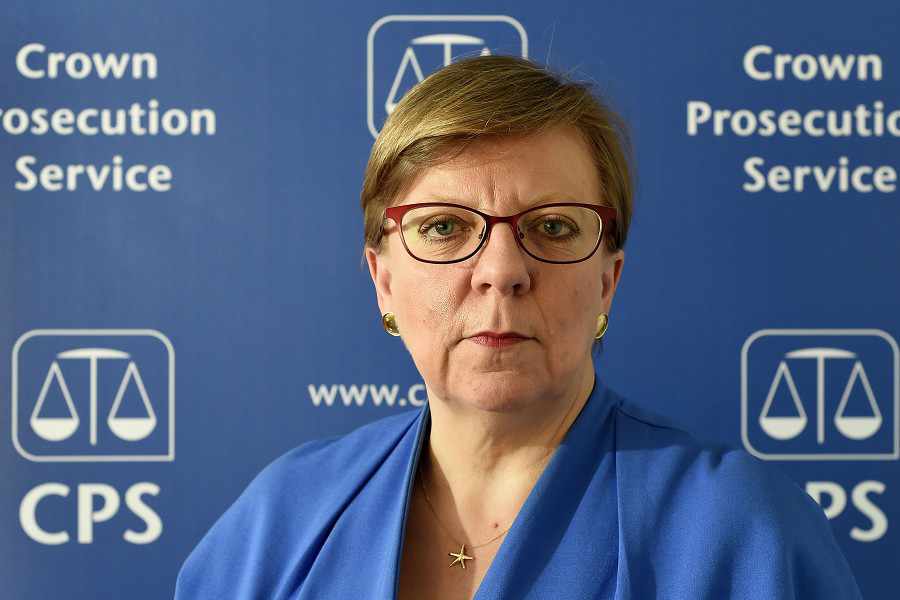
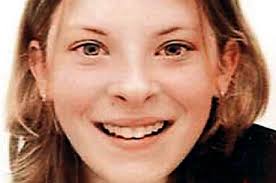
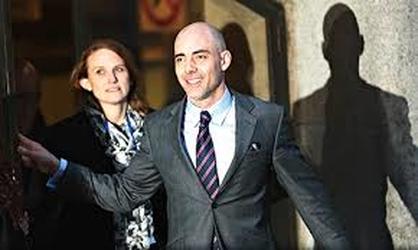







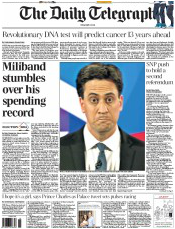

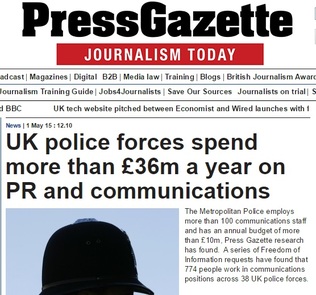
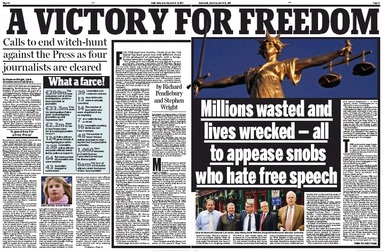
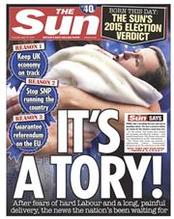
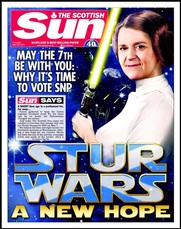
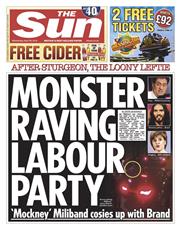
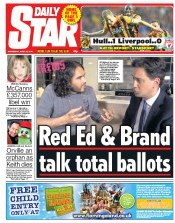
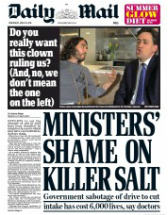
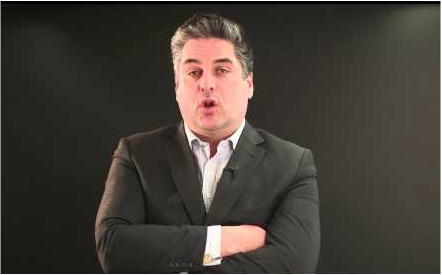








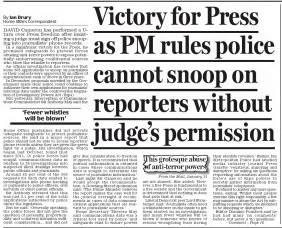


 RSS Feed
RSS Feed


